
Born: April 1, 1937 in Kolkata
Education: St Edwards High School in Shimla
St. Xavier College, Kolkata
S.T. High School (Minto Circle), AMU Aligarh
M.A. (Political Science) in 1959 from AMU Aligarh
Lecturer: Department of Political Science, AMU Aligarh -1959-61
Joined Indian Foreign Service in 1961 (4th Rank)
Chairman: National Commission for Minorities: March 2006 till date
Vice-Chancellor: Aligarh Muslim University from 28th May 2000 to 30th March 2002.
Chief of Protocol Officer Government of India (1980-85),
Ambassador: United Arab Emirates (UAE) 1976-80
Afghanistan, Iran, Saudi Arabia and Australia
Permanent Representative to the United Nations
Visiting Professor: The Centre for West Asian and African Studies,
Jawaharlal Nehru University
The Academy for Third World Studies, Jamia Millia Islamia
Chairman: The Advisory Committee for Oil Diplomacy of the Ministry of
Petroleum and Natural Gas
Co-Chairman: The India-UK Round Table
Member: The National Security Advisory Board
Trustee: The Bapu Sadbhavana and Shiksha Trust
Padma Shiri: 1984
Vice President of India - August 10, 2007 - Till date
Mohammed Hamid Ansari was born on April 1, 1937 in Indian city of Kolkata. His family originally belongs to Ghazipur (UP) but his father was staying in Kolkata. He is the grand-nephew of Dr. Mukhtar Ahmad Ansari, who was President of the Indian National Congress in 1927 (Madras Session) and founding member of Jamia Millia Islamia. After completing his primary education from St Edwards High School in Shimla, he joined St. Xavier College, Kolkata and later joined Aligarh Muslim University for higher education. He was a part of AMU cricket team during his student life and was wicket-keeper in the cricket team. After completing his education he joined teaching at AMU Aligarh and later qualified for UPSC and joined Indian Foreign Service (IFS) in 1961.
In his career as seasoned diplomat he served as ambassador to United Arab Emirates (UAE) from 1976 to 1980. He also served as Chief of Protocol Government of India from 1980 to 1985. He had also served as an ambassador to Afghanistan, Iran and Saudi Arabia. He had also served as High Commissioner to Australia. He had also served as Convener and later Chairman of The Advisory Committee for Oil Diplomacy of the Ministry of Petroleum and Natural Gas. He was a Permanent Representative to the United Nations. After retirement from Indian Foreign Services, he joined as a visiting Professor at the Centre for West Asian and African Studies, Jawaharlal Nehru University and the Academy for Third World Studies, Jamia Millia Islamia, New Delhi.
In May 2002, even with a lot of odds due to his age of 63 years he was appointed as Vice-Chancellor of his alma mater, Aligarh Muslim University. He served as AMU Vice-Chancellor from 28th May 2000 to 30th March, 2002. The only special thing about his term at AMU was 53rd Annual Convocation of 2001 which was held on 26th February, 2002 in Athletic Ground in AMU campus. The convocation address was given by former Prime Minister of India, Mr. I.K. Gujral. The annual convocation was held after a gap of 15 years. The 52nd annual convocation was held in 1986 and the convocation address was given by Giani Zail Singh, the then President of India. Here is the annual report presented by Mr. Mohammad Ansari at the historical 53rd annual convocation of AMU on 26th February, 2002;
Today is indeed a joyous occasion for us in this University where an Annual Convocation, instead of being an academic necessity, had become something of a rarity. For this reason alone, the happening would be noteworthy; what makes it doubly pleasant is the presence in our midst of Shri Inder Kumar Gujral as the Chief Guest. Gujral Saheb needs no introduction to audiences, national or international. His continued involvement in public affairs, and his position as a senior statesman, is an asset to the Indian polity. We in the Aligarh Muslim University also remember him for the pivotal role which he played many years ago in heading the Committee appointed by the Government of India for the Development of Urdu Language and Literature.
In a country like ours, where there are more than 200 Universities, a place of eminence is hard to attain and even harder to sustain. The Aligarh Muslim University is amongst the older Universities of the country having been established in 1920. We are in that privileged group of institutions of higher learning which find a mention in the seventh schedule of the Constitution of India. The University today has 89 Departments of Studies spread over 12 faculties namely Agriculture, Arts, Commerce, Engineering Tech., Law, Life Sciences, Management Studies, Medicine,
Science, Social Sciences, Theology and Unani Medicine. We have in the current academic year a little over 19000 students on our rolls including 6356 girl students. The founding fathers of this institution established it as a Residential University and the great majority of our students, therefore, reside in 15 Halls of Residence which have between them a total of 64 hostels. Besides this 5000 students are members of the non-resident student centre.
You are aware, Ladies and Gentlemen, that this University is the embodiment of a vision, a mission, and a movement. It was the expectation of Syed Ahmad Khan that the students of this institution “shall go forth throughout the length and breadth of the land to preach the gospel of free enquiry, of large hearted toleration and of pure morality”. Our alumni have certainly traveled to the four corners of the globe and very many of them have brought laurels to themselves and glory to their alma mater. This, however, does not lull us into a sense of complacency since we are aware that the other elements of the Motto of the College spelt out by Syed Ahmad Khan on January 8, 1877 remain but partially achieved and have shown a declining level of attainment. The malaise was diagnosed by a distinguished senior teacher of this University sometime back and is worth sharing with this audience:
A University is an institution of higher learning and its primary focus should be on matters academic. The derailment of yesteryears in our academic schedules and procedures has now been set right. The open lines of communication between the students, the teachers and the University administration enabled us in September 2000 to avert an unpleasant happening. In the past two academic sessions the curricula studies have been revised and updated. Attendance requirements have been strictly enforced and examination and admission schedules fully adhered to. As a result the academic performance of our students has registered some improvement. The young men and women who are receiving their degrees today would, therefore, step with greater confidence into the world outside.
A number of academic challenges confront us. The entire system of higher education in the country is confronted with the requirement of adjusting itself to the imperatives of change. The era of uncharted expansion is certainly over. In terms of its capacity the University is bursting at the seams. Its intake of students cannot be enhanced without major new infrastructural investments in faculty buildings, laboratories, library facilities and hostel space. Some funding for this from the Government would certainly be forthcoming; but would it be at a level and at a pace which would meet our requirement? The University, therefore, has to think about new ways of resource mobilization. The emerging policy framework of the UGC suggests performance budgeting, optimum utilization of the infrastructure, and a reduction of expenditure on salaries. Each one of these would entail an exercise in meaningful restructuring.
Another imperative is that of competition, quality performance and excellence. The University faculty has to develop and implement an enforceable framework of academic audit. The University needs, in particular, to enhance its research output in thrust areas. It has to ensure that the curricula of studies is constantly reviewed in order to keep up with the advancements in knowledge to ensure that our students are not deprived of its benefits.
The All India character of the University and the specific responsibility entrusted to it under Section 5(2)(c) under AMU Amendment Act imposes on us responsibilities which have been of late inadequately discharged. With this in view, a Committee of prominent public figures headed by our distinguished Pro Chancellor, Dr. Mumtaz Ahmed Khan was requested in October 2001 to review the admission policies of the University. Its report has now been finalized and will be submitted to the concerned University bodies for their consideration.
The AMU’s professional courses in Medicine, Engineering, Unani Tib, Management and Dentistry continue to attract good talent and result in stiff competition in entrance examinations. Our earlier decisions relating to the enhancement of intake in some of these professional courses resulted in difficulties with the statutory regulatory agencies. All of these have now been resolved; the sole exception is Dentistry where, too, good tidings are in the offing. The experience of unauthorised increases in the levels of intake does, however, require to be digested.
In response to a felt need a Foundation Course on Syed Ahmad Khan’s teaching and on the Aligarh Movement was introduced this year and has been widely welcomed. The University Grants Commission has to be thanked for approving the establishment of two new Centres, one on Nehru Studies and the other on Women’s Studies; both have started functioning. The UGC has also approved the establishment in the AMU of a nodal centre for Hiking and Mountaineering.
In the area of research the 10 year of DSA programmes in Geology, Mathematics, Urdu, Physics and History were extended. We have the ability of meaningful contribution to the national research effort in areas of biotechnology and environmental sciences and it will be the University’s endeavour to develop our research capabilities in these fields.
Despite having made a very early start in the area of computers, adequate infrastructure was not created in the University. Funds now available permit us to develop a campus network which would make internet facilities available in the first instance to the Faculties of Science, Life Sciences and Engineering and, in the second phase to the rest of the University. The University is also part of the UGC’s scheme of having a network linking all Indian Universities. Besides this the computerization of accounting, admissions and examinations has been completed and these together have considerably enhanced the quality of service in each of these areas.
The Maulana Azad Library, with its collection of over ten lakhs of books continues to be intensively utilized by the students at all hours of day and night. A programme to computerize the Library has been initiated and is expected to be completed soon. The Oriental Section of the Library, comparable in quality and quantity to the Khuda Bakhsh and Raza Libraries, has a priceless collection of over 14000 manuscripts including many pieces of exquisite calligraphy and of miniature paintings which were described by Gandhiji as an eternal feast for the eyes. The University has recently obtained expert advice on ways of developing the Manuscript Section in order to enhance its utility for scholars and researchers.
Aligarh’s old tradition of excellence in extracurricular activities in the areas of sports, performing arts, music, painting and debating has been revived through focused inputs. As a result the University achieved number two ranking in the All India Inter-Varsity Tennis Tournament in 2001 and, for the first time in its history, won the All India North-Zone Cricket Tournament in the current year. Students of the University excelled and won prizes in national competitions in shooting and roller skating. The General Education Centre’s Mass Communication team was adjudged as the overall champion for presenting the best film. In the Youth Festival this year our boys and girls collectively bagged 16 prizes and thus set an all time record.
The founding fathers of this institution had the vision to acquire for the University sufficient space for future expansion. The need of the hour, therefore, is to develop the campus in a planned and systematic manner. With this objective in view, a Master Plan Committee headed by a distinguished alumni was appointed last year; it is expected to finish the first phase of its work in the next few weeks. A number of development works of IX Plan period including new building for the Faculties of Law and Commerce and for the Department of Wild Life are nearing completion. A Women’s Hostel for postgraduate is under construction and extension works have been carried out in different sections of Faculty of Engineering.
The maintenance of and care of old buildings is a matter of particular importance for an institution which has been in existence for over a century. Last year the UGC gave us a special grant of Rs. 1 crore which was put to produce and many of the historic buildings of the University benefited from it. The Executive Council has recently taken a decision to have all the buildings in the Sir Syed Court, as also the Victoria Gate, declared as Heritage Sites and to have them registered with the Indian National Trust for Art and Cultural Heritage (INTACH). This would facilitate the maintenance of their historic character.
It gives me great pleasure to say that we are conferring today honorary degrees on three outstanding personalities in the fields of performing arts, literature and physical sciences. It was our ardent wish to have included in this distinguished list the name of an eminent jurist whose services to the cause of civil liberties and human rights are widely known within the country and abroad and to whom this University in particular owes a debt of gratitude. This wish remains unrealized today on account of a technicality and on extraneous considerations; it does not in any manner lessen the respect and affection for the individual.
Overall, Ladies and Gentlemen, the AMU is in good shape and is feeling rejuvenated. The University today needs to complete, in the words of a distinguished alumni, Syed Ahmad Khan’s unfinished agenda of fostering liberal and modernist ideas. It must respond to the winds of change just as Syed Ahmad has done. It must equip its students, and in some measure the Muslims of India to participate in, and respond meaningfully to, the imperatives of the new and vibrant India that is emerging before our eyes:
On 30th March after reaching to age of 65 years (as he was born on 1st April 1937), he handed over the charge of AMU Vice-Chancellorship to the Pro-Vice-Chancellor, Prof. Saleemuddin Siddiqui and moved back to Delhi to live a retired life. Even in his retired life, he was very active in academics and was serving as Visiting Professor to JNU and Jamia Millia Islamia in New Delhi and was a seasoned write to different news papers and print media on different social and political issues. Mr. Ansari wrote trenchantly on the Palestinian issue and took positions inconvenient to the Indian official line on Iraq and Iran. In a Leader Page article, “Alternative approaches to West Asian crises” (The Hindu, May 5, 2006), he brought out the need for simultaneous progress on Palestine, Iraq and Iran. In an earlier article, “Et EU, India,” (Outlook, October 10, 2005), he questioned India’s vote in the International Atomic Energy Agency on Iran’s nuclear programme. He said that though the Indian Government claimed to have acted on “its own judgment,” this was not borne out by facts. He also edited Iran Today: Twenty Years after the Islamic Revolution (Rupa, New Delhi, 2005) and has written a number of academic papers and newspaper articles on West Asian politics.
Mr. Ansari was appointed to the 5th Statutory National Commission for Minorities (NCM) in March 2006. Before that he was co-chairman of the India-U.K. Round Table, a member of the National Security Advisory Board and convener (and later chairman) of the Petroleum Ministry’s advisory committee on Oil Diplomacy for Energy Security. He was chairman of the working group on “Confidence building measures across segments of society in the State,” established by the Second Round Table Conference of the Prime Minister on Jammu and Kashmir in 2006. The report of the working group was adopted by the Third Round Table in April 2007. Among other things, the report advocates recognizing the right of Kashmiri Pandits to return to “places of their original residence.” This right, it argued, should be recognized without any ambiguity and made a part of state policy.
Seasoned diplomat and academician Mohammed Hamid Ansari was on Friday, 20th July, 2007 unanimously chosen as the United Progressive Alliance-Left candidate for the post of Vice-President of India. Scholar-diplomat-writer and currently Chairman of the National Commission for Minorities, Mohammad Hamid Ansari, brings with him a wealth of experience, having handled an impressive range of assignments in a career spanning over 45 years.
Mohammad Hamid Ansari has handled an impressive range of assignments in a career spanning over 45 years. These positions include co-chairman of the India-U.K. Round Table, a member of the National Security Advisory Board and convener (and later chairman) of the Petroleum Ministry's advisory committee on Oil Diplomacy for Energy Security. He has a deep interest in West Asian affairs. He has written extensively on the subject, including in The Hindu , where his latest column appeared on July 11.
Mr. Ansari edited the book, Iran Today: Twenty Five Years After the Islamic Revolution.
Links are provided here to his articles and book reviews in The Hindu and Frontline.
Source : http://www.hinduonnet.com/nic/0059/index.htm
| • | Where does the Palestinian cause stand? (20070711) |
| • | Iraq: Game plan for the endgame? (20070629) |
| • | Craft, credulity, and reason (20070528) |
| • | The war of ideas: mindsets and options (20070501) |
| • | Arab Summit seeks a way out in West Asia (20070405) |
| • | Signatures on a napkin — lobbies and national interest (20070326) |
| • | Continuing myopia in West Asia (20070312) |
| • | Israel, America, and the question of Palestine (20061220) |
| • | The search for a solution in war-torn Iraq (20061025) |
| • | Political and military scenario-building on Iran (20061005) |
| • | The great American disconnect (20060923) |
| • | The `war on terror' and West Asia circa 2007 (20060902) |
| • | War and war crimes (20060808) |
| • | Domestic imperatives in Iran's foreign policy (20060712) |
| • | The perils of dissent in U.S. universities (20060613) |
| • | Grand bargains and distress sales (20060605) |
| • | The U.S. and the strategy for freedom (20060602) |
| • | Alternative approaches to West Asian crises (20060501) |
| • | Iraq, Iran, and a strategy of a thousand errors (20060410) |
| • | Strategic interests and political lobbies (20060329) |
| • | The OIC and India: signals of a re-think (20060130) |
| • | Of holocausts, past and future (20051230) |
| • | The Makkah Declaration: rhetoric and reality (20051215) |
| • | The doctrine of "national interest" (20051104) |
| • | The un-stated major premise (20051020) |
| • | The complex battlefields of Iraq (20051008) |
| • | An old debate reopened (20050914) |
| • | In the land of Hammurabi (20050826) |
| • | The tussle for the Iranian Presidency (20050613) |
| • | Junctions and roadblocks in Arab politics (20050505) |
| • | The question of Arab unity and reform? (20050415) |
| • | Iran: stirring the pot? (20050328) |
| • | More sophistry? (20050305) |
| • | The reopened Iraq debate (20050204) |
| • | United States and the world (20050124) |
| • | Elections in Iraq (20050118) |
| • | Iran at the crossroads (20041028) |
| • | Will America heed the message? (20041004) |
| • | Iran and the U.S. (20040823) |
| • | The urge to modernise West Asia (20040618) |
| • | The imperative of wisdom (20040513) |
| • | Bush backs Sharon's scheme (20040416) |
| • | Bremer, Brahimi and Babylonia (20040306) |
| • | Iraq defies the script (20040128) |
| • | The U.S. in Iraq (20031029) |
| • | A visitor with a past (20030815) |
| • | The U.S. and Muslim nations (20021203) |
| • | Glimpses of Iran (20070615) |
| • | Dimensions of insecurity (20060505) |
| • | Changing diplomacy (20051118) |
| • | Understanding the Indian Muslims (20041119) |
| • | Sovereignty and human rights (20030117) |
| • | Thwarted dreams (19981023) |

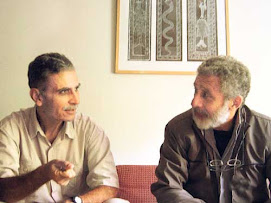
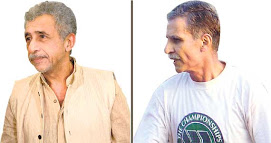



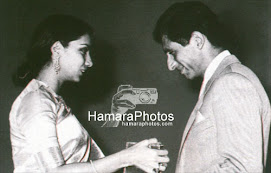
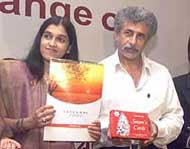










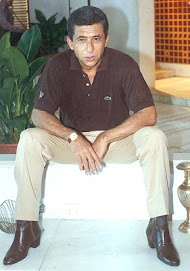


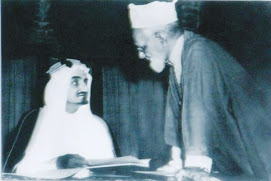

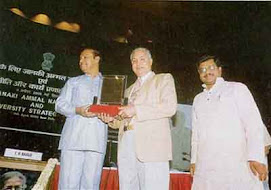
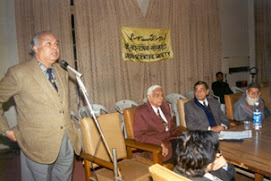
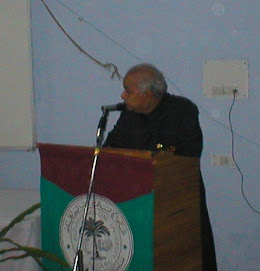














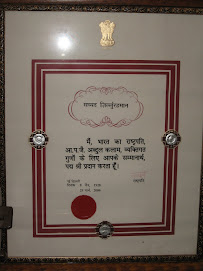
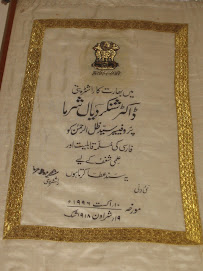



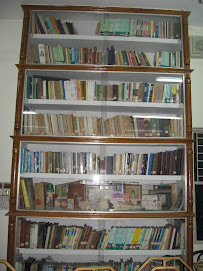
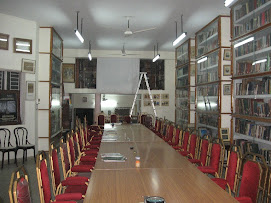
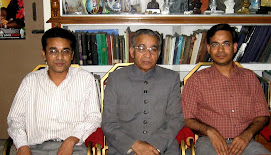
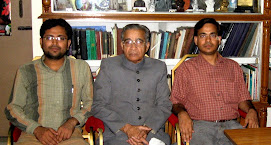




































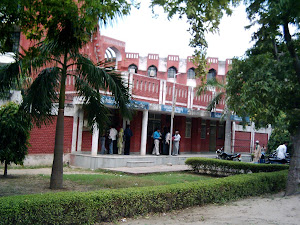
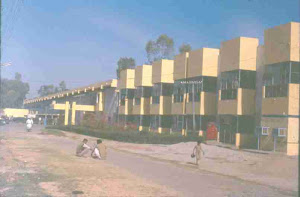


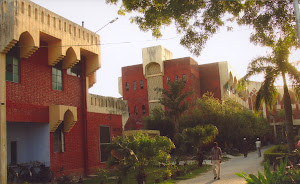
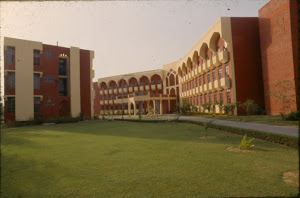





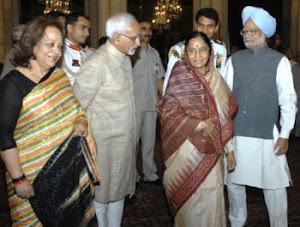
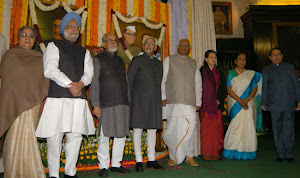
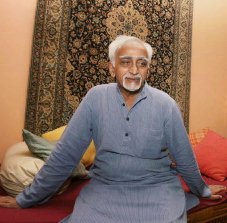
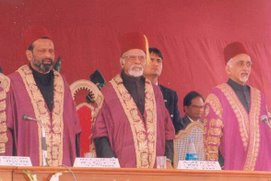

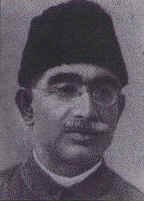




























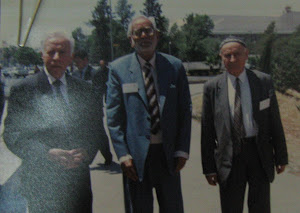







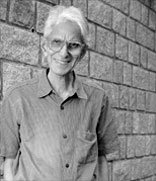






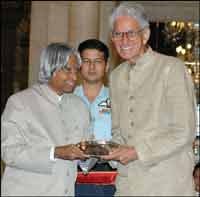



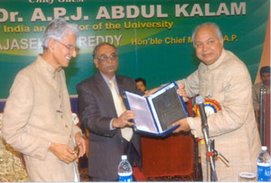

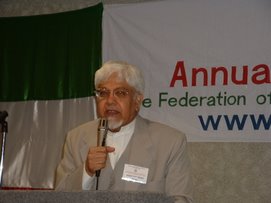
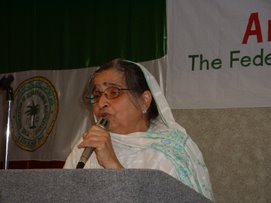
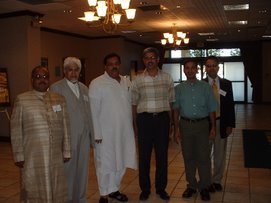
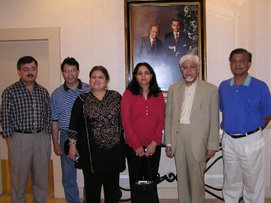




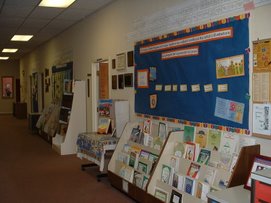



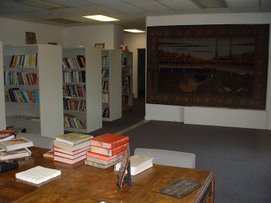

No comments:
Post a Comment